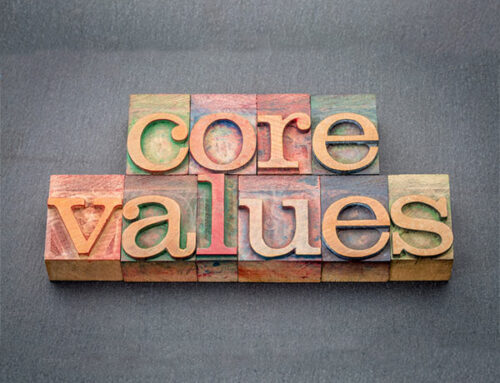
Introduction
Transitioning from childhood to adulthood can be a challenging journey for any young person, but for those with disabilities, the path may be even more complex. One crucial aspect of this transition is choosing the appropriate guardianship model to support and protect the individual's rights and well-being. In this blog, we will explore the importance of selecting the right type of guardianship and how organizations like The Arc and the National Guardianship Association (NGA) can assist parents in understanding the intricacies of filing for guardianship.
Understanding Guardianship
Guardianship is a legal relationship that grants one individual the authority to make decisions on behalf of another who is deemed unable to make those decisions independently.

In the case of children with disabilities, this decision-making responsibility often continues beyond their 18th birthday when they officially transition into adulthood. There are two types of guardianship statuses to consider: limited and full.
Limited Guardianship: This type of guardianship restricts the guardian's authority to specific areas or decisions, allowing the individual to retain as much independence as possible. Limited guardianship is typically the preferred choice for those with disabilities who can make some decisions on their own but require assistance in specific areas. (Guardianship overview | EJI | Department of Justice)
Full Guardianship: In contrast, full guardianship grants the guardian broader authority, often encompassing personal, financial, and medical decisions. This option is chosen when the individual requires additional support in making significant decisions independently. (Guardianship for Adults with Disabilities | Law Office of Amy Handler Kasallis (kasallislaw.com))
Let's delve into two real-life client examples to understand why choosing the right type of guardianship is paramount:
Example 1: Sarah's Story
Sarah, an 18-year-old with Down syndrome, is a remarkable individual who has made significant strides in developing independent living skills. She takes pride in managing her daily routines and has a warm, welcoming presence within her community. Despite these commendable achievements, Sarah occasionally faces challenges when it comes to navigating complex financial decisions.
Recognizing their daughter's remarkable progress and her desire for independence, Sarah's parents, Emily and David, approached the decision of guardianship with great care. They believed it was essential to find a balance between providing support and respecting Sarah's autonomy. After consulting with legal experts and considering Sarah's unique needs, they decided to pursue limited guardianship, a choice that offered several distinct advantages:
- Sarah maintains decision-making power in various aspects of her life.
- She can actively participate in her community and continue developing life skills.
- Emily and David can help Sarah with financial matters while respecting her independence.
Example 2: Jason's Journey
Jason, a 21-year-old with severe autism, possesses a unique and inspiring spirit. However, the challenges he faces in communication and independent decision-making have been profound throughout his life. These difficulties have led to a deep sense of concern and responsibility among his family, particularly his devoted aunt, Maria.
As Jason transitioned into adulthood, it became evident that he required a level of care and support that extended beyond what he could manage independently. Maria, who had played an active role in Jason's life from a young age, assumed the role of guardian with unwavering determination. After extensive consideration and consultations with legal professionals, she made the heartfelt decision to pursue full guardianship, recognizing the profound benefits it would provide:
- Jason's medical, financial, and personal needs are comprehensively managed.
- Maria can advocate for Jason's best interests and make critical decisions.
- Jason is protected from exploitation or undue influence.
Finding Help
Understanding the intricacies of guardianship can be a daunting task for parents and guardians. This is where organizations like The Arc and the National Guardianship Association (NGA) come into play.
The Arc is a nationwide advocacy group dedicated to supporting individuals with intellectual and developmental disabilities and their families. They provide a range of services, including guidance on guardianship issues:
- Information and Resources: The Arc offers comprehensive resources and information about guardianship, explaining the legal aspects, the different types of guardianship, and the steps involved in the process.
- Support and Advocacy: The organization can connect parents with advocates who can help them navigate the legal system, ensuring their child's rights and best interests are protected.
- Training and Workshops: The Arc often hosts training sessions and workshops to educate parents and guardians about guardianship options, alternatives, and best practices.
Let's return to Sarah and Jason's stories to understand how The Arc and other organizations can be helpful in navigating guardianship.
Sarah's story
One day, after careful consideration, Emily and David decided to reach out to The Arc, a respected advocacy group for individuals with disabilities. The Arc, known for its wealth of knowledge and support, played a pivotal role:
- Knowledge and Guidance: The Arc shared invaluable resources that demystified the concept of guardianship. They shed light on the legal aspects involved and provided step-by-step guidance, empowering Emily and David with the knowledge needed to make informed decisions.
- Advocacy and Assistance: Through The Arc, the family connected with experienced advocates who had walked a similar path. These advocates became their pillars of support, ensuring that Sarah's rights and interests remained at the forefront throughout the guardianship process.
- Learning and Sharing: The Arc's workshops and training sessions brought Emily and David together with other parents who were navigating similar challenges. They found solace in sharing their stories, learned about various guardianship options, and discovered a supportive community that understood their journey.
Jason's Story
To navigate the complexities of guardianship, Maria sought guidance from advocacy groups such as The Arc and the National Guardianship Association (NGA). These organizations provided crucial support and expertise:
- Expert Wisdom: Maria reached out to The Arc and NGA, both renowned for their knowledge in guardianship matters. They offered insights into the intricacies of guardianship, the legal obligations, and ethical responsibilities, equipping Maria with the wisdom needed to make informed decisions.
- Legal and Ethical Clarity: NGA, being a professional association, provided Maria with valuable insights into best practices in guardianship. This ensured that all decisions made on Jason's behalf adhered to the highest legal and ethical standards.
- Emotional Support: These advocacy groups went beyond providing information; they created a sense of community. Maria connected with other families in similar situations, finding comfort in sharing experiences, seeking advice, and knowing she was not alone on this challenging journey.
Guided and supported by The Arc and NGA, Maria confidently pursued full guardianship for Jason. This decision ensured that Jason's complex needs were comprehensively managed, his best interests were tirelessly advocated for, and he was shielded from potential exploitation or undue influence.
In both Sarah and Jason's stories, the involvement of advocacy groups transformed their guardianship journey into a path illuminated with knowledge, resources, and emotional backing. These organizations play a pivotal role in helping families make informed decisions that upheld the well-being and autonomy of their loved ones with disabilities.
Conclusion
Choosing the right type of guardianship for a child with a disability transitioning into adulthood is a deeply personal and legally significant decision. Limited guardianship respects the individual's autonomy while providing needed support, allowing them to grow and learn. Full guardianship, on the other hand, is chosen when the individual lacks capacity in most areas and requires comprehensive care.
Understanding the importance of tailoring guardianship decisions to each individual's unique needs. Organizations like The Arc and the National Guardianship Association can be invaluable partners in this journey, offering information, support, advocacy, and professional guidance to ensure that children with disabilities can embrace adulthood with the right level of support, safeguarding their rights and well-being.
For more information about The Arc and National Guardianship Association visit:
References:
Guardianship for Adults with Disabilities. (n.d.). The Law Office of Amy Handler Kasallis. Retrieved September 12, 2023, from https://www.kasallislaw.com/guardianships-full-and-limited
Guardianship Overview. (n.d.). The United States Department of Justice. Retrieved September 12, 2023, from https://www.justice.gov/elderjustice/guardianship-overview








Leave A Comment
You must be logged in to post a comment.